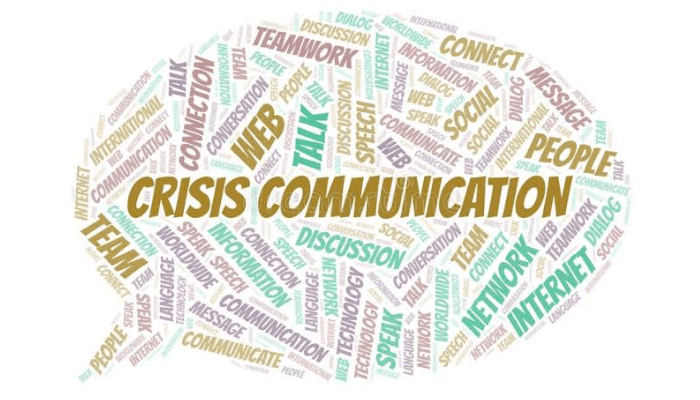In 2021 Burna Boy took home a Grammy for his album Twice as Tall and was featured on tracks by the likes of Sia, Justin Bieber, and John Legend. That’s to say nothing of the collaboration between Kenyan artists like Sauti Sol and India Arie or between Ghana’s Kwesi Arthur and British rap giant Stormzy.
For years, the phrase “Africa rising” was applied to the continent’s growing economies and vibrant business space. But it’s becoming increasingly apparent that the phrase could equally be applied to Africa’s music scene.
While these collaborations have historic precedent – think about Miriam Makeba’s work with Harry Belafonte in the 1960s, Lady Smith Black Mambazo’s collaboration with Paul Simon in the 1980s – they have never come thicker, faster, or included a more diverse collection of artists from across the continent than they do today.
It’s difficult to pinpoint when the trickle became a torrent, but there have been a few seminal moments. The inclusion of several South African artists including Babes Wodumo, Sjava, Yugen Blakrok, and Saudi on the soundtrack for Marvel blockbuster Black Panther is just one example.
Social media, meanwhile, has further amplified the ability of African artists to grab the world’s attention. The virality of “Essence” by Wizkid, featuring Justin Bieber and Tems and Fireboy DML’s “Peru” are two of the more recent examples of this. At Spotify, we’ve witnessed this growth first-hand. Over the last year alone, the Nigerian Alte genre has grown by over 200%.
The large diaspora populations of many African countries in major markets such as the United Kingdom and the United States are also playing a role in seeding the continent’s music abroad. Combined with the existing talent that’s made a major mark, this means that international listeners will likely keep viewing Africa as a hub for new music talent for some time to come.
This influence can be seen in the fact that people in the US make up more than 21% of listeners to the Ghanaian pop genre on Spotify and that the US and UK make up nearly 40% of the billions of plays of Afro Dancehall songs over the course of the past year.
Africans listening to Africans
It’s clear then that African artists have a major future at the global level. But it’s also worth noting that Africans are listening to more artists from around the continent than ever before. Nigerian Afrobeats and R&B singer Fireboy DML provides a good illustration of this.
He was the ninth most popular artist in Nigeria in 2021 by Spotify streams, the seventh most popular artist in Uganda, and sits just outside the top 10 in Ghana, taking 11th place. He is, additionally, a top 20 artist in Tanzania, and a top 40 artist in Kenya.
African artists are also collaborating with each other more than ever. In Ghana, for instance, two of the top 10 most streamed songs over the past year both feature local rapper Kwesi Arthur and Nigerian singer Joeboy.
Kenyan artist Otile Brown’s collaboration with Rwandan singer Meddy “Dusuma” is, meanwhile, the sixth most played local song in Kenya over the past year.
Our “African Heat” playlist is further amplifying music from artists around the continent as well as from the African diaspora around the world. That doesn’t just benefit listeners, but artists too. As they listen to other artists on the playlist, they’re more likely to find potential collaborators.
A number of other African artists have achieved similar levels of intra-continental success and will likely continue to do so, especially as connectivity becomes cheaper and more ubiquitous across the continent.
Read also: Burna Boy becomes first African to achieve 200m streams on Boomplay
Making talent visible
Those growing global and African audiences also have an increasingly wide array of African content to choose from. But in order for that growth to be sustained and for new artists to come to the surface, they need to be supported. At Spotify, we recognise this and have a number of initiatives in place to ensure that they’re given maximum visibility.
Spotify EQUAL aims to foster gender equality in music and provide a platform to highlight influential female creators. Among the African artists to have been featured on EQUAL are Kenya’s SSARU and Muthoni Drummer Queen, Nigeria’s Ayra Starr, and South Africa’s DBN Gogo.
Spotify Radar, meanwhile, is a programme aimed at emerging artists. These musicians get slots on Spotify’s programmed playlists – including a dedicated ‘On Our Radar’ playlist – as well as other types of marketing support and editorial content. The “Radar Africa” playlist features exciting new artists on the rise from the African continent and diaspora. Since launching, the playlist has received more than 43 000 likes.
African music rising
Africa has always had the talent needed to be at the forefront of the global music industry. In the year since Spotify launched in Sub Saharan Africa, we’ve seen it go from strength to strength, but we’ve also seen just how deep the continent’s talent pool is. There are many more artists just waiting to be discovered across the continent and they deserve to be heard by international audiences. That’s already happening to a significant degree and will continue to happen going forward.
In the past, the phrase “Africa rising” had to do with resources, growing economies, and innovative startups. Today, it’s increasingly powered by music.
Okumu is Spotify Head of Music in Sub-Saharan Africa
Join BusinessDay whatsapp Channel, to stay up to date
Open In Whatsapp





